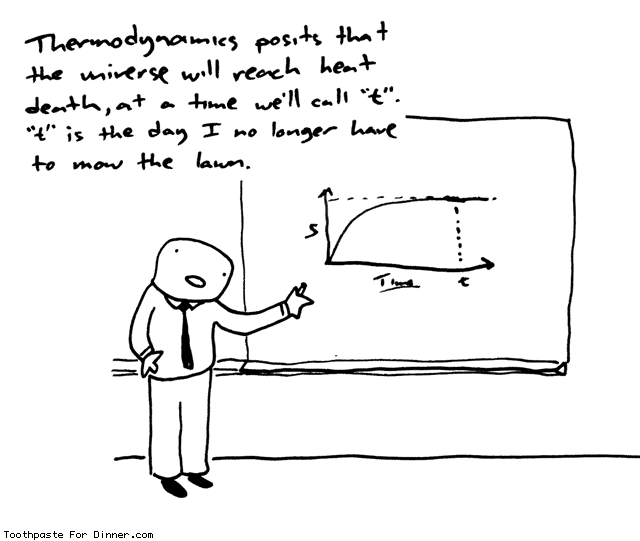
What is the point of human life? We're all going to die anyway, after all, inhabiting thereafter an everlasting nothingness.
Here's an answer to that question that doesn't try to deconstruct it.
The point may involve saving the universe from itself. The Big Bang of contemporary astronomical theory, combined with the conventional understanding of the 2d law of thermodynamics, leads to a rather dismal prospect of a universe that expires slowly but inevitably into nothingness, by spreading out and cooling off until nothing is left. Like a clock that can never re-wind itself. Like our own lives, but on a really big scale. And with nothing left to carry on, nor any project left to be carried, or any place to carry it.
Can the universe avoid that fate? Perhaps -- I suspect that advanced species can and sometimes do get far enough in their own scientific development to figure out how to beat the 2d law in their cosmic locality. Those localities then become sources of growth and restoration for the whole.
If I'm right, then the Big Bang theory could be wrong, and something like the Steady State theory of Hoyle could be right. The advancement of certain self-conscious species on certain planets may be the way in which the universe as a clock re-winds itself.
I hope and expect that the human race survives its own worst impulses and reaches the state where it can play its part in this cosmic drama. I hope and believe that I, in my 56 years and counting, have already played a (very small but real) role in the survival and reconciliation of our species.
Thus, I think my own life has had and is having plenty of point, and I propose the same hypothesis for your consideration.
Comments
Post a Comment